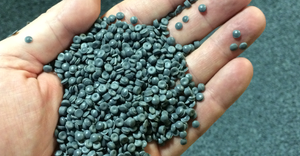Good Support, Planning Key to Successful Leachate Management
Managing leachate can be difficult and costly, particularly when it comes to monitoring health and safety incidents or keeping up with regulatory changes.
The key to successful leachate management, according to Ron Ruocco, PE, of Civil and Environmental Consultants in North Carolina, can be outlined with the acronym “ASSET.”
According to Ruocco:
Assemble a leachate management team
Study the collected leachate data
Study and understand the leachate management system
Evaluate impacts and chances to improve performance of treatment systems before any problems arise.
Talk and negotiate with regulatory agencies.
Health and safety issues are at the top of the list when it comes to leachate management and, while it may seem like there are too many factors to consider—from hazardous material handling to working in confined spaces to maintenance access—Ruocco says it is important to stay vigilant at all times.
A good maintenance program and keeping a supply of spare parts will go a long way in preparing for any problems that may arise, he adds, but having workers cross trained for a variety of tasks and employing specialized maintenance support can also help manage problems that pop up.
Whatever methods are used to maintain leachate management systems, Ruocco stresses that proper documentation is critical and can help when it comes to system troubleshooting, equipment configuration, and operations issues. Be sure at all times that documentation is correct and up-to-date.
Proper documentation will also help when it comes to working with regulators. Keep in contact with regulators and know your limits and requirement. Don’t agree to permit changes without careful analysis, Ruocco says, and be sure to analyze leachate for a variety of constituents—not just those that are regulated.
At WasteExpo 2015, Ruocco and Jeffrey Palutis, director of operations, Progressive Waste Solutions, will discuss this topic and others at the a session entitled, “Do’s and Don’ts of Leachate Management.” It will take place on Wednesday, June 3 at 1:30 PM.
In addition to these points, the session will delve deeper into how to find support for leachate management that will result in cost savings and overall system improvements.
Technological advances for problem constituents such as ammonia, COD/BOD, and dissolved solid and metals also will be covered during the session, in addition to management and removal options for these constituents. The speakers will compare the pros and cons of various ammonia removal options, wetland considerations, and concerns related to leachate recirculation such as monitoring pH levels and flow rates.
They will also cover biological process development, total dissolved solids (TDS) limits and options for reduction processes.
About the Author
You May Also Like


